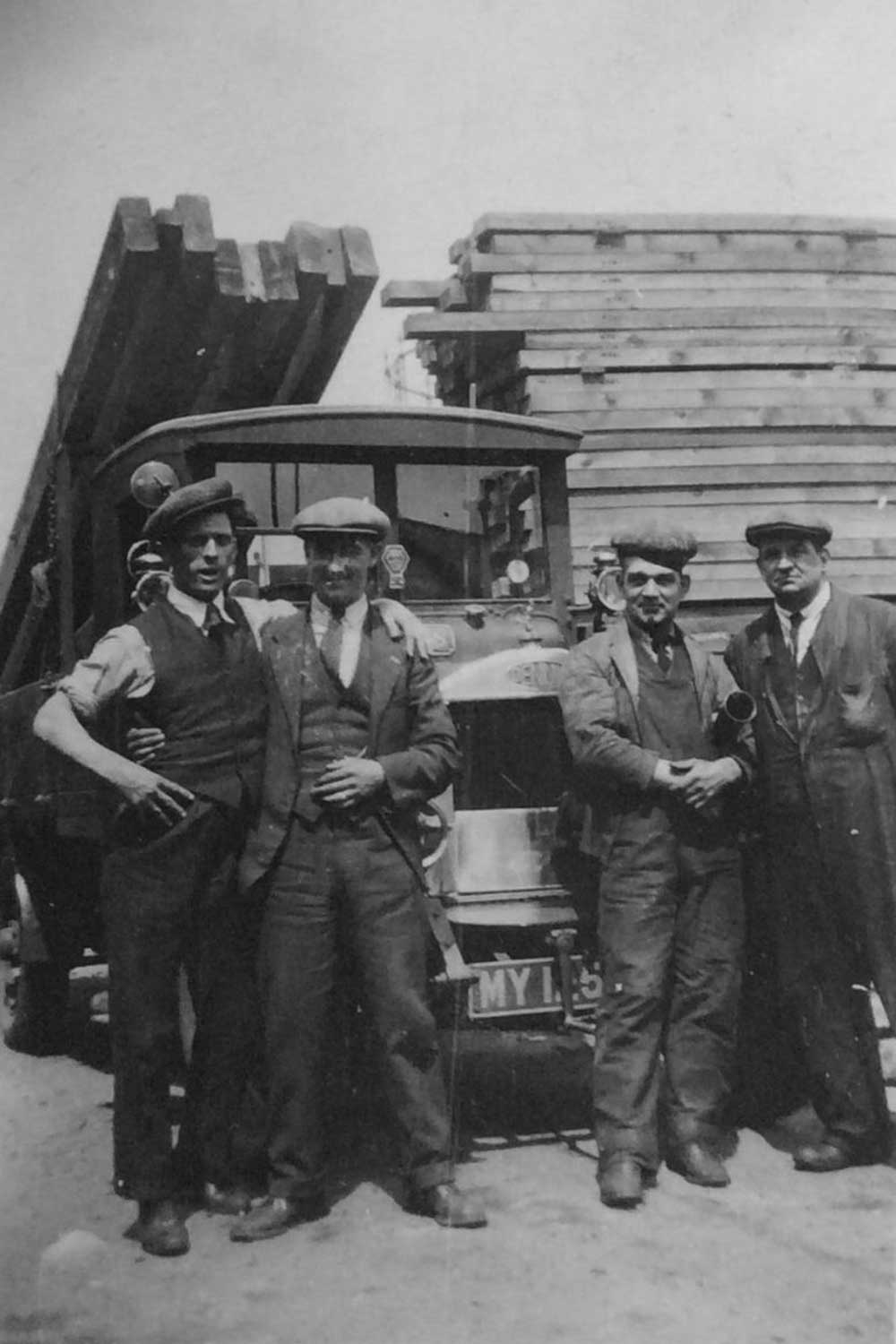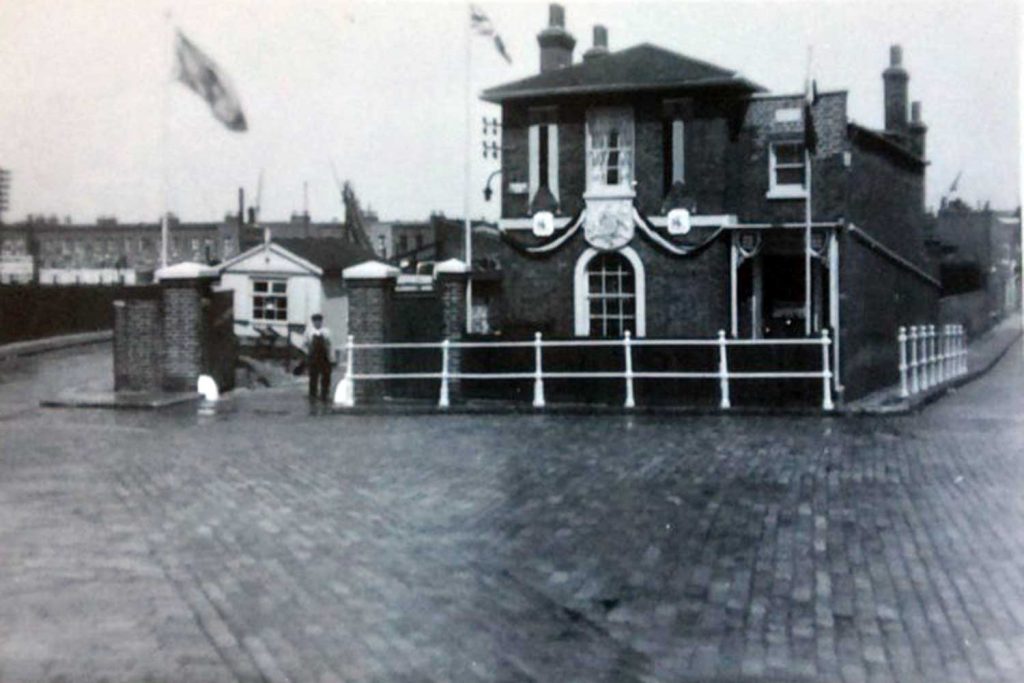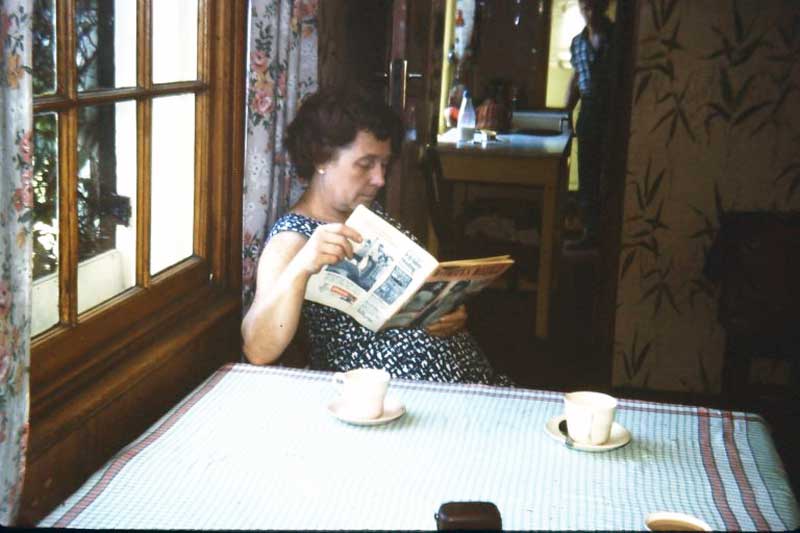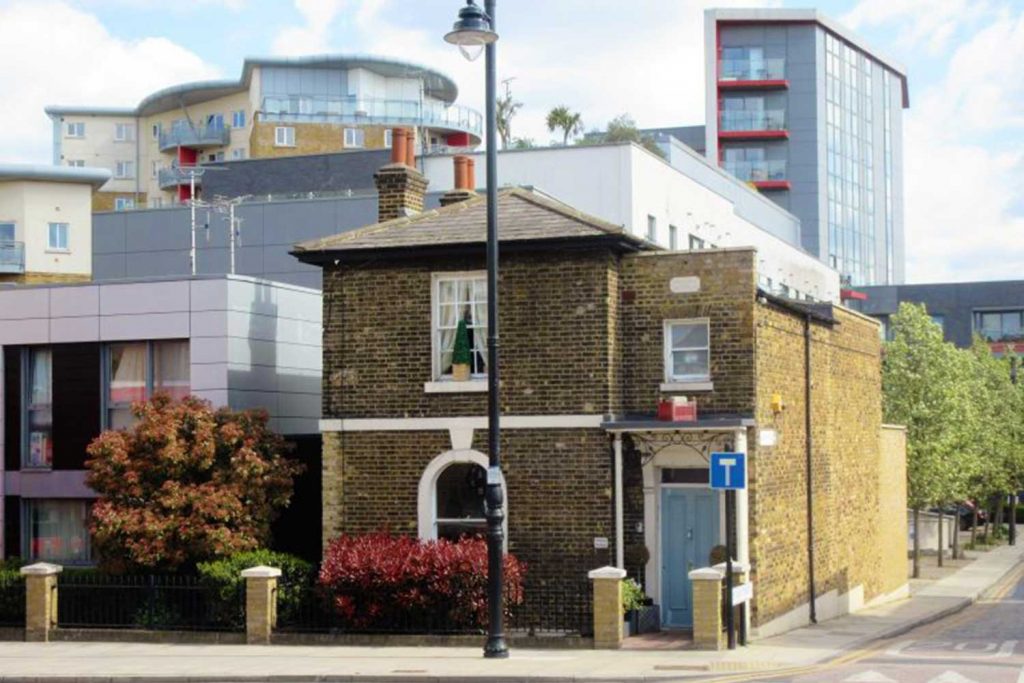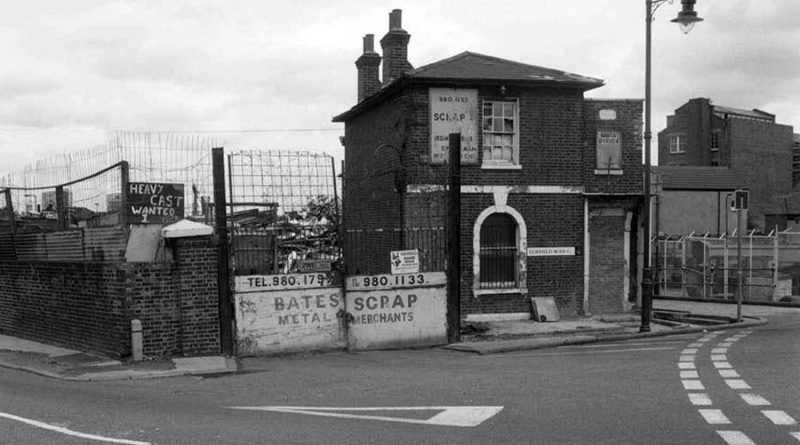The story of Pelican Cottage and William Press Yard
Recently discovered archive photographs of Pelican Cottage reveal its links to the neighbouring William Press Yard and life in ‘fifties Bow.
On the junction of Tredegar Road and Fairfield Road is a small, quaint Victorian cottage, now dwarfed by high rise housing. Most of us have noticed it, especially at Christmas when it’s covered in fairy lights. Yes, Pelican Cottage.
When Geoff Clements first wrote about Pelican Cottage, it was but a brief mention on his blog London Shoes, in which he documents his walks exploring the heritage of London’s Streets. Spotted by Marion, she contacted him with the desire to share her story of the house she grew up in. Marion has requested to be referred to by her first name only.
Built in the early 1800s, Pelican Cottage has survived over 200 years’ worth of social change, the industrial revolution, WW2 bombings plus all the extensive redevelopment of the buildings and streets surrounding it. This beautiful little house is still in use today and has been given Grade II listed status.
Marion lived at Pelican Cottage with her family for 13 years from 1953 until 1967, from the age of 7 to 20, when she married and moved away. Marion never returned to Pelican Cottage & Bow again, but fondly remembers her time at Pelican Cottage.
At first sight, Pelican Cottage seems to have been built in three stages – from its Fairfield Road frontage down Douro Street towards the back garden, each stage with a slightly different roof level.
Beneath the house, there were sizeable cellars that were used to shelter from air raids during WW2 by the family living there. The ground floor room, with its unusual oval window, was used as an office by the Manager of the Yard.
Marion’s father worked for ‘William Press & Sons Ltd.’ engineering firm, and in 1953 was promoted to Yard Foreman at the Bow Depot of William Press Ltd. Situated inside the William Press Ltd site, residents would go out into the yard from the cottage’s front or back garden gate, then out through the yard gates onto the street.
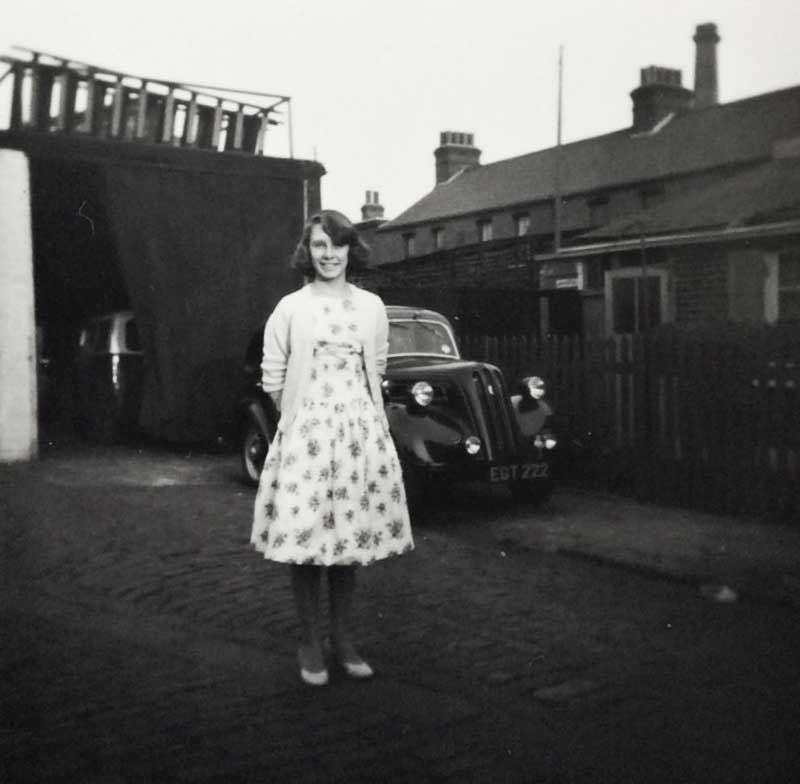
Founded by William Allpress in 1913, the company was involved in Operation Pluto (Pipeline Under the Ocean or Pipeline Underwater Transportation of Oil, also written Operation PLUTO) which constructed submarine oil pipelines under the English Channel in support of Operation Overlord, the Allied invasion of Normandy during the Second World War. Later, in the 1970s, the company converted about 50 percent of the UK’s houses from town gas to natural gas.
As a youngster, Marion was excited by the yard and all the comings and goings, the lorries, the carpenters’ shop, the piles of wood, and the huge piles of builder’s sand. She recalls always getting in trouble for playing in the sand when the yard was closed, her white ankle socks turning bright orange, or suffering splinters that needed removing if she’d been climbing on the stacks of wood.
‘Sammy, our much loved dog wasn’t allowed to have the run of the yard when it was closed because the petrol and diesel spillages from the lorries burnt his foot pads quite badly’ recalls Marion. ‘On one occasion he did manage to escape!! He was however quite happy being in the front garden because Dad had cut a hole ‘Sammy head size’ for him to poke his head out so that he could watch all the comings and goings, often getting a fuss and having his ears scratched from anyone who happened to be in the yard and passing by.’
Dray horses would pull up in Douro Street alongside the railings by Pelican Cottage for a break after delivering supplies to the local pubs. Marion remembers how those grand horses with long white hair obscuring their feet, would come rumbling down the cobblestone street; ‘you could always hear them coming, they made quite a noise. They would have names like Thunder and Lightning, Pride and Prejudice, always names that linked.’
By the 1970s, and within living history for many people living in Bow, the yard was the site for Bates Scrap Metal Merchants. The picture below was taken a few years after Marion and her parents had left, and the house was left in disrepair.
Looking back, Marion has always felt lucky to have lived and grown up in Pelican Cottage, her surroundings so unique. The history of Pelican Cottage is entwined with the history of not only Marion but also Britain’s engineering heritage. To have this gem still standing is a delight.
This article is an adapted version of Pelican Cottage – Fairfield Road-Bow E3….’Marion’s Story’ from Geoff Clements’ blog London Shoes. Take a look at the original blog for more fascinating memories of Marion’s life in Pelican Cottage.
If you enjoyed this piece, take a look at our piece on Mile End Park’s Eco Pavilion; from post-war prefabs to picturesque parkland.
